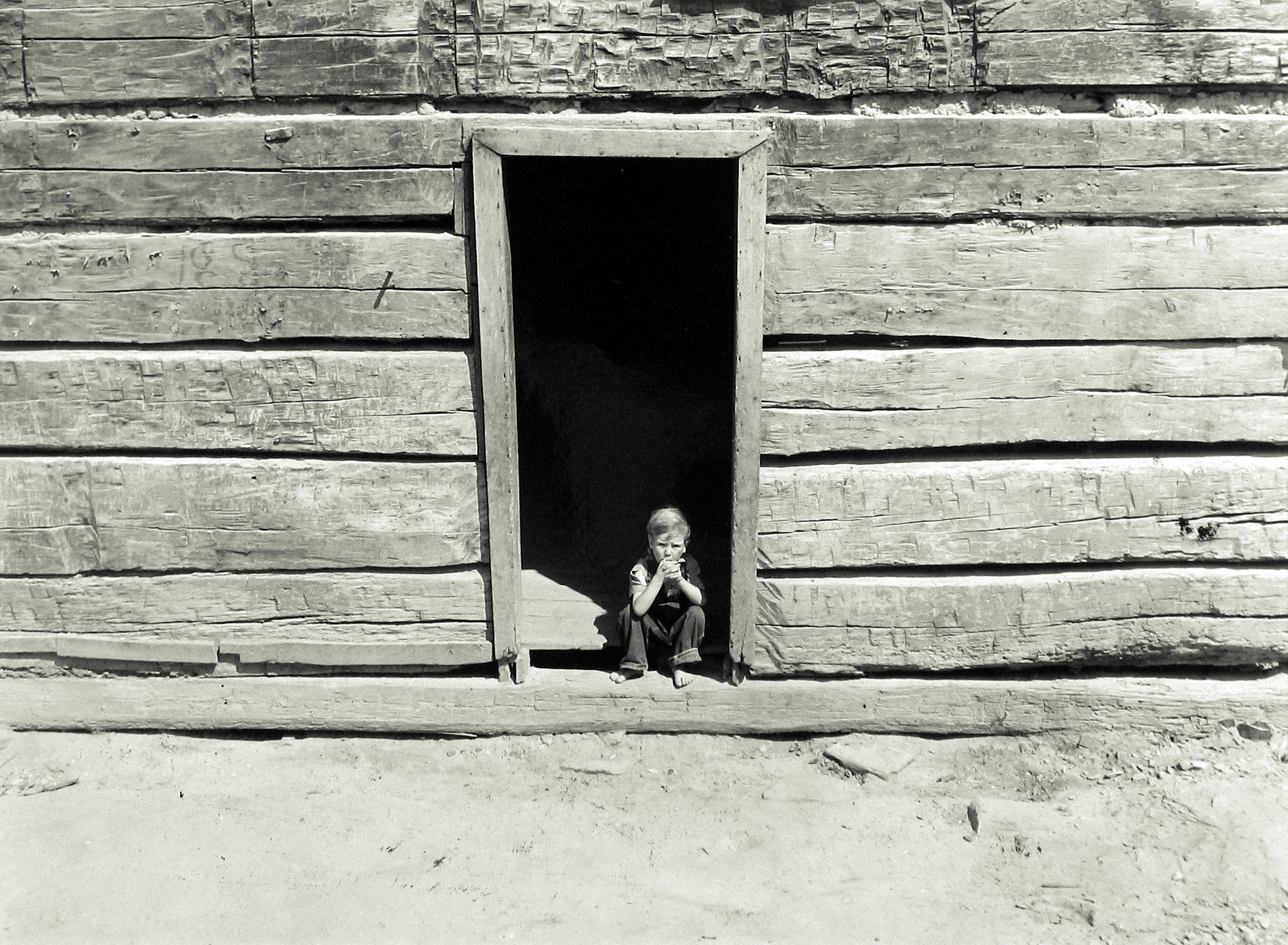
Old Mountain Cabin Made of Hand Hewn Logs, near Jackson, Breathitt County, Kentucky, September 1940
Marion Post-Wolcott
Marion Post Wolcott (1910-1990) is best known for the more than 9,000 photographs she produced for the Farm Security Administration (FSA) from 1938 to 1942. She covered thousands of miles of the United States with her camera to document and publicize the need for federal assistance to those hardest hit by the Great Depression and agricultural blight.
In the 1930s, Wolcott attended lectures at the Photo League where she met Paul Strand and Ralph Steiner who invited her to join a group of young photographers who met at Steiner's apartment for informal discussions. Wolcott became a freelance photographer but jobs were difficult to find. She had limited success but was able to secure a few assignments from magazines. But Wolcott was soon bored and got Ralph Steiner to show her portfolio to Roy Stryker, the head of the photography division of the FSA, who hired her on the spot and gave her the first full time FSA appointment offered to a woman. Dorothea Lange had been on staff since 1935, but she worked only part-time and produced far fewer photographs for the agency.
In 1941, Marion Post married Lee Wolcott, a widower with two small children. Wolcott attempted to continue her career as well as raise her husband's children but, with war rationing of foods, cars, tires, and gasoline, and women shifting from traditional low-wage housekeeping positions to high-paid war work, that plan proved impossible, especially now that she covered the Western United States.
Wolcott never photographed professionally again but did not stop making photographs. She gave away portraits of her neighbors and images of farming in rural Virginia. From 1954 until 1959, the Wolcotts lived in Colorado and New Mexico. While Lee worked for the State Department from 1959 to 1968, the family lived in Iran, Afghanistan, Pakistan, India, and Egypt. Just prior to a forced evacuation from Egypt during the Seven Days War in 1967, Wolcott destroyed nearly all of her remaining personal archive to save it from capture.
Wolcott and Lee then settled in California, where Wolcott documented the counter-culture. As a docent in photography at the Santa Barbara Museum, she showed her work to the staff who began to exhibit them.
Wolcott received many awards during her last decade, including the Oakland Museum's Dorothea Lange Award, the Society of Photographic Educator's Lifetime Achievement Award, and the National Press Photographer's Lifetime Achievement Award. In one of her last major speaking engagements, she delivered the keynote address at the 1986 Women in Photography conference at Syracuse University where her photographs were on exhibition. Poor health prevented her from attending the April 1990 show of her work at the International Center for Photography in New York, months before her death.